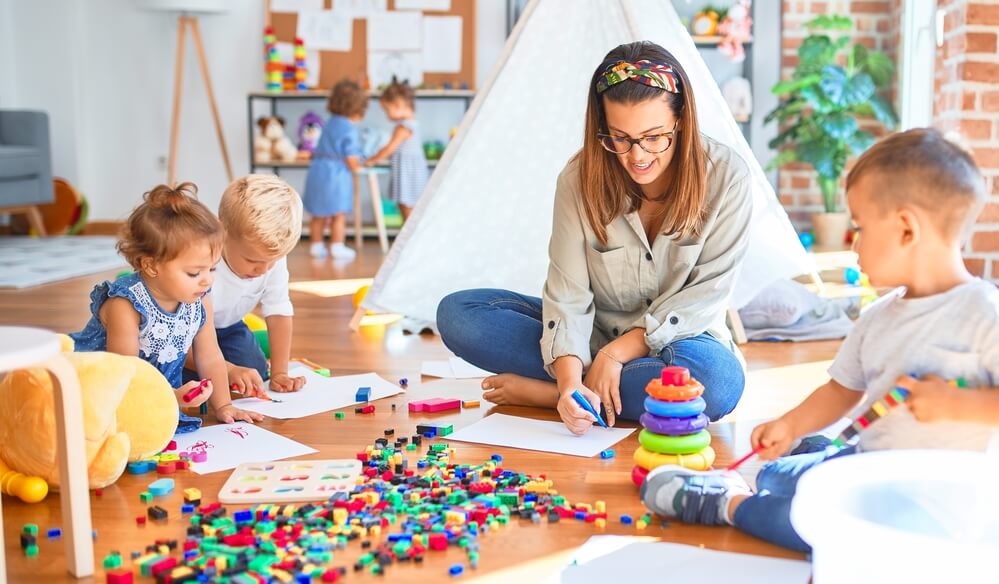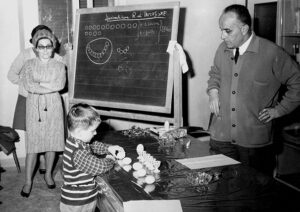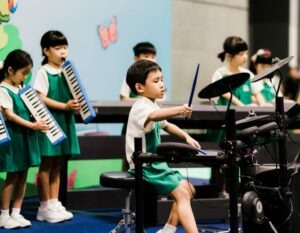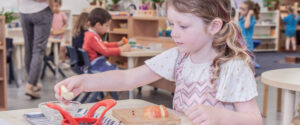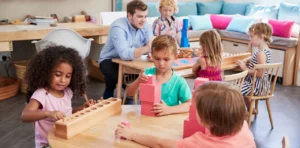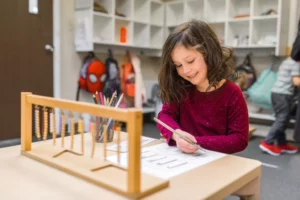Montessori Education is an innovative approach that places the child at the heart of learning. Let’s delve deeper into this unique method, its core principles, and the impact it can make on your child’s educational journey.
Understanding Montessori: Unraveling the Philosophy
The Montessori approach empowers children to be proactive in their learning journey. It creates an environment where children naturally explore their interests, fostering independence and a love for learning.
The Prepared Environment: Montessori’s Unique Learning Landscape
At the heart of Montessori is the concept of the ‘Prepared Environment.’ This meticulously crafted environment is designed to stimulate the child’s curiosity and encourage self-directed learning.
Mixed Age Groups: Learning Beyond the Classroom Walls
Montessori schools uniquely incorporate mixed-age classrooms. This system not only promotes social interaction but also facilitates peer learning and fosters a sense of community among students.
The Role of Montessori Materials: Concrete to Abstract Learning
Montessori education makes extensive use of specially designed materials. These hands-on materials are instrumental in helping children grasp abstract concepts through concrete experiences.
Freedom with Limits: Balancing Independence and Discipline
While Montessori education encourages children’s independence, it doesn’t compromise on discipline. ‘Freedom within limits’ is a defining feature, where children are given the liberty to explore within a structure of respectful boundaries.
The Montessori Guide: A Facilitator, Not a Teacher
In Montessori schools, educators play the role of a guide rather than a traditional teacher. They observe, support, and facilitate learning, allowing the child to take the reins of their educational journey.
Experiential Learning: A Practical Approach
Experiential learning is a significant aspect of the Montessori approach. It emphasizes learning by doing, which is proven to be more effective than rote memorization.
Life Skills and Practical Activities: Beyond Academics
Montessori education extends beyond academics, incorporating practical life skills. Activities like cooking, cleaning, and gardening help children develop essential skills for lifelong success.
Intrinsic Motivation: The Fuel for Learning
The Montessori curriculum cultivates a child’s intrinsic motivation for learning. Instead of relying on external rewards or punishment, children are encouraged to learn out of genuine interest and curiosity.
The Long-Term Impact of Montessori Education: Shaping Future Leaders
Montessori-educated children often grow into independent, confident adults. They are well-equipped to take on leadership roles, make sound decisions, and navigate the challenges of life with resilience.
In conclusion, Montessori Education is a child-driven, dynamic, and transformative approach to learning. It places the child at the heart of education, empowering them to explore, discover, and learn at their own pace.

